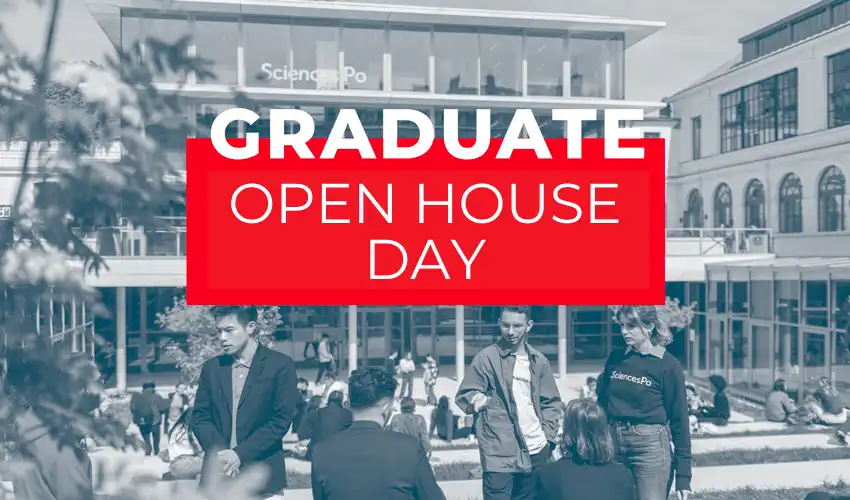Home>Océane Evrard, class of 2018
12.07.2021
Océane Evrard, class of 2018
Can you describe your academic and professional background?
I began my studies at Sciences Po, during which I did my third year abroad in Philadelphia. When I returned from the United States, I wanted to complete my education by joining the dual degree program with HEC Paris, entitled Corporate and Public Management. This dual degree allowed me to continue my exploration of political science by entering the Master in Public Policy at Sciences Po while acquiring management skills at HEC. Not only was this dual training very complementary on the academic level, but it was also very enriching on the human level: it allowed me to discover networks, cultures, and different ways of approaching the job market!
At the end of my studies, I joined a strategy consulting firm that specializes in health: Nordmann. I joined as an intern at the end of my studies and I am now a partner.
What were the main stages in the construction of your professional project?
It was during my master's years that I was able to identify several of my attractions, which continue to guide my professional choices today. First of all, I discovered my taste for risk and entrepreneurship by pursuing several internships in start-ups and by being actively involved in some associations. Then, I was able to verify my interest in management and administration during the first year of my master at HEC. And finally, my desire to invest in a sector that makes sense to me: health.
Like many students of Sciences Po, I asked myself many questions during my studies, and more so as my graduation date approached... I considered working as a consultant in a Big Four company, taking the civil service exam to become a hospital director... until I found the perfect combination of all these desires at Nordmann. I discovered the firm thanks to a friend from my graduating class who had interned there: it offered me the possibility of participating in an ambitious entrepreneurial adventure (the firm was created in 2015 and has experienced strong growth), of being strongly and quickly empowered (we are a small team, and the consultants are very quickly able to work in the field and in the front office) and of deepening my knowledge in the sector that interests me.
How did the recruitment process go with Nordmann?
Once I made contact, the recruitment process at Nordmann was very quick. Having prepared myself for the interviews of strategy consulting firms, I was not surprised by the content. Above all, I quickly felt a real "fit" with my recruiter, which quickly tipped the balance. If I had one piece of advice for young graduates, it would be this: demonstrating your skills is obviously essential in a recruitment interview, but don't forget to take your feelings into account and let them speak for themselves so that your recruiter feels your enthusiasm and wants to work with you.
What are the main characteristics of your position today?
My progression at Nordmann has been strong and fast: after a little more than two years with the firm, I am now an equity partner.
Today, I manage strategy consulting missions from A to Z for healthcare institutions: development projects, investment projects, governance reorganization, etc. In this context, I supervise several juniors for the production of deliverables, I am responsible for quality and I manage the client relationship.
But my status as an associate also allows me to actively participate in the company's strategy: business development, HR strategy, and internal operations, among other things. Today, thanks to Nordmann, I am living an entrepreneurial experience that I would not have dared to undertake on my own when I left school.
How did your training at the School of Public Affairs contribute to the position you hold today?
My training at Sciences Po gave me a lot: first of all, my knowledge of public health was a real asset to immerse myself quickly in my work. But beyond my theoretical knowledge, my studies at Sciences Po allowed me to familiarize myself with the culture and the way the public sector operates.
In terms of skills, my training also gave me the methods to think about and explore a subject, to put it into perspective, to manage a workload that can be variable, all skills that I was able to enrich and develop during my early career.
But above all, I would say that Sciences Po has contributed to building me as a person: even if I am not at the end of the road, my school has taught me to be proactive, to take risks, and above all to always remain critical and intellectually aware of the world around me. This is what I am most grateful for.
LEARN MORE
Virtual Graduate Open House day, October 2025

On 18 October 2025: meet faculty members, students and representatives and learn more about our 30 Master's programmes.